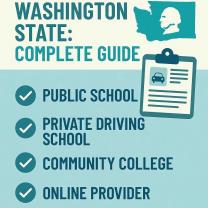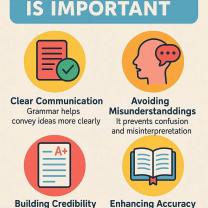How should I study for an English Test?
Studying for an English test can be both challenging and rewarding. To perform well on such tests, you need a well-rounded approach that includes improving your reading, writing, grammar, and vocabulary skills. Here are some effective study strategies for English tests:
Understand the Test Format:
- Familiarize yourself with the test format and the types of questions you can expect. This might include multiple-choice, essay, or short-answer questions.
Create a Study Schedule:
- Plan your study time over several weeks or months, depending on the test's importance. Consistency is key.
Reading Comprehension:
- Read a variety of texts, such as newspapers, magazines, literature, and academic articles.
- Take notes while reading to help retain information.
- Practice summarizing and analyzing texts.
Grammar and Syntax:
- Review the rules of grammar and syntax.
- Complete grammar exercises or quizzes.
- Identify common errors and practice correcting them.
Vocabulary Building:
- Learn new words and their meanings.
- Use flashcards or vocabulary apps to help with retention.
- Read books and articles to see new words in context.
Writing Skills:
- Practice essay writing, focusing on structure, coherence, and argument development.
- Review sample essays and identify their strengths and weaknesses.
- Seek feedback from teachers, tutors, or peers.
Take Practice Tests:
- Use practice tests and past exam papers to simulate test conditions.
- Time yourself to get a sense of the pace required during the actual test.
- Review your answers to understand your mistakes and areas for improvement.
Speaking and Listening (if applicable):
- Practice speaking English with native speakers or language partners.
- Listen to podcasts, watch English-language movies, and engage in conversations to improve your listening skills.
Seek Help and Feedback:
- Don't hesitate to ask teachers, tutors, or classmates for help and clarification.
- Request feedback on your practice essays and exercises to identify areas for improvement.
Stay Healthy and Manage Stress:
- Get enough rest, exercise, and maintain a healthy diet to keep your mind sharp.
- Manage test anxiety through relaxation techniques like deep breathing and mindfulness.
Stay Updated:
- Keep up with current events and popular culture, as English tests often include questions related to these topics.
Use Study Resources:
- Utilize textbooks, online resources, and study guides designed for your specific English test.
Stay Organized:
- Keep all your study materials, notes, and resources organized for easy access and review.
Practice Time Management:
- In timed sections, learn to allocate your time wisely and not get stuck on one question.
Review and Revise:
- Regularly revisit the topics you've covered to reinforce your understanding.
Remember that effective English test preparation is a gradual process, so start well in advance of your test date. Tailor your study strategies to your specific needs and goals. With dedication and consistent effort, you can significantly improve your English skills and perform well on your test.
Effective Study Strategies for English Language Tests
- Set realistic goals. What do you want to achieve on your English language test? Once you know your goals, you can create a study plan that will help you reach them.
- Identify your strengths and weaknesses. What areas of English do you need to work on the most? Once you know your weaknesses, you can focus your studies on those areas.
- Create a study schedule and stick to it. Schedule time to study regularly, even if it's just for 30 minutes a day.
- Use a variety of study methods. Some people learn best by reading, while others learn best by listening or speaking. Try different study methods to find what works best for you.
- Take practice tests. Practice tests are a great way to get familiar with the format of the test and to identify any areas where you need to improve.
- Get help from a teacher or tutor. If you're struggling with a particular area of English, don't be afraid to ask for help. A teacher or tutor can provide you with personalized instruction and support.
Structured Study Plans and Schedules for Test Preparation
Here is a sample study plan for a student preparing for an English language test:
Week 1:
- Take a practice test to identify your strengths and weaknesses.
- Research the format of the test and the types of questions that will be asked.
- Create a study schedule and stick to it.
Week 2-4:
- Review the basics of English grammar and vocabulary.
- Focus on your weaknesses, such as reading comprehension or listening comprehension.
- Take practice tests regularly to track your progress.
Week 5-6:
- Review your notes and practice tests.
- Focus on any areas where you're still struggling.
- Take a full-length practice test under timed conditions.
Week 7:
- Relax and get enough sleep.
- Review your notes and practice tests one last time.
Practice Tests and Mock Exams for English Proficiency
Practice tests are a great way to prepare for your English language test. They can help you to:
- Get familiar with the format of the test
- Identify your strengths and weaknesses
- Track your progress
- Practice answering different types of questions
There are a number of different ways to find practice tests for English language tests. You can find them online, in books, or at your local library.
Mock exams are simulated English language tests that are administered under timed conditions. They can help you to:
- Experience the pressure of taking the real test
- Identify any areas where you need to work on your test-taking skills
Mock exams can be found at some English language schools and testing centers.
Utilizing Study Guides and Learning Materials
Study guides and learning materials can be a great resource for students preparing for an English language test. They can provide you with:
- Information about the format of the test
- Tips for answering different types of questions
- Practice questions and exercises
When choosing study guides and learning materials, make sure that they are specific to the English language test that you are taking.
Managing Stress and Anxiety During English Test Preparation
It is normal to feel stressed and anxious when preparing for an English language test. However, there are a number of things that you can do to manage your stress and anxiety, such as:
- Get regular exercise. Exercise is a great way to reduce stress and improve your overall well-being.
- Get enough sleep. When you are well-rested, you are better able to cope with stress and anxiety.
- Eat a healthy diet. Eating nutritious foods will give you the energy that you need to study and to take the test.
- Take breaks. Don't try to study for hours on end without taking a break. Get up and move around every 30-60 minutes.
- Talk to someone you trust. If you are feeling overwhelmed, talk to a friend, family member, or teacher. They can offer you support and encouragement.
On the day of the test, try to relax and focus on doing your best. Remember that you have prepared for this test and that you are ready to succeed.












